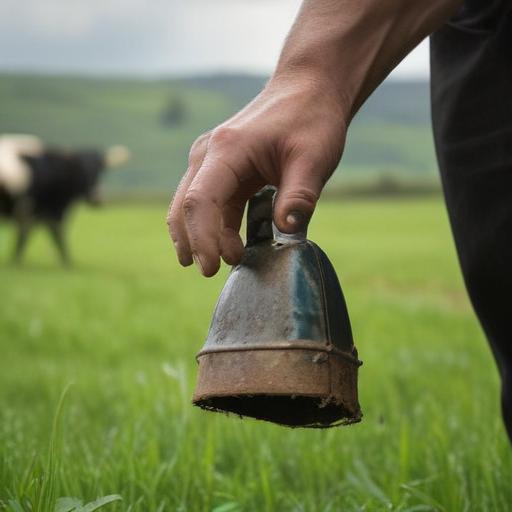Sandra Palleiro, a 60-year-old accountant, has embarked on a challenging journey to locate her missing cows in a muddy field in Uruguay’s remote border area with Brazil. With 61 cattle allocated to her as part of an investment scheme that has since collapsed, she has traveled 600 kilometers from her home in Montevideo, hoping to track down the animals that may not even exist—part of a larger scandal involving over 700,000 so-called “phantom cows.”
The cattle herding investment plan linked to Palleiro, which initially promised reliable returns of 7-10% on investments, has fallen into disarray, with substantial losses estimated at $350 million affecting a nation known for its stable agriculture sector. The fallout of the scheme extends beyond Palleiro and several other investors; it has also shaken neighboring countries like Argentina and Brazil, where similar livestock investment models exist.
Palleiro’s efforts to verify the existence of her cattle involved inspecting the tracking numbers on their ear tags against the registry she carried. Unfortunately, her efforts proved fruitless as several numbers did not align, further deepening her despair. She expressed her emotional turmoil by stating, “It feels like falling into a nightmare.”
The crisis began to unravel when Gustavo Basso, a co-owner of Conexión Ganadera—one of the firms involved in the scheme—tragically died by suicide following a car accident in November 2022. This incident marked the precursor to a series of complaints from investors regarding late payments. As concerns mounted, it became apparent that the company was grappling with a shortfall of nearly $250 million. Investigations into fraud are ongoing, highlighting a significant breach of trust in a system that had functioned effectively for many years prior.
While the fallout has left countless investors, including pensioners and professionals like Palleiro, reeling, it’s important to recognize the systemic failures that allowed this situation to escalate. Calls for accountability and reform within these investment practices have grown, aiming to prevent future occurrences. There remains a glimmer of hope that the ongoing investigations will lead to reparations for those affected, as well as enhanced regulations to safeguard investors in livestock schemes.
The situation underscores the necessity for vigilance and due diligence in investment ventures, particularly in challenging markets like agriculture, where trust can easily be undermined. As Palleiro and many others continue to fight for their rights, there is a collective desire for resolution and recovery within Uruguay’s agricultural community.
